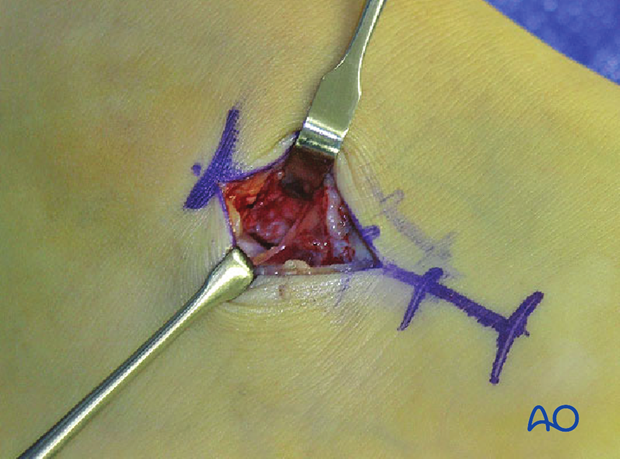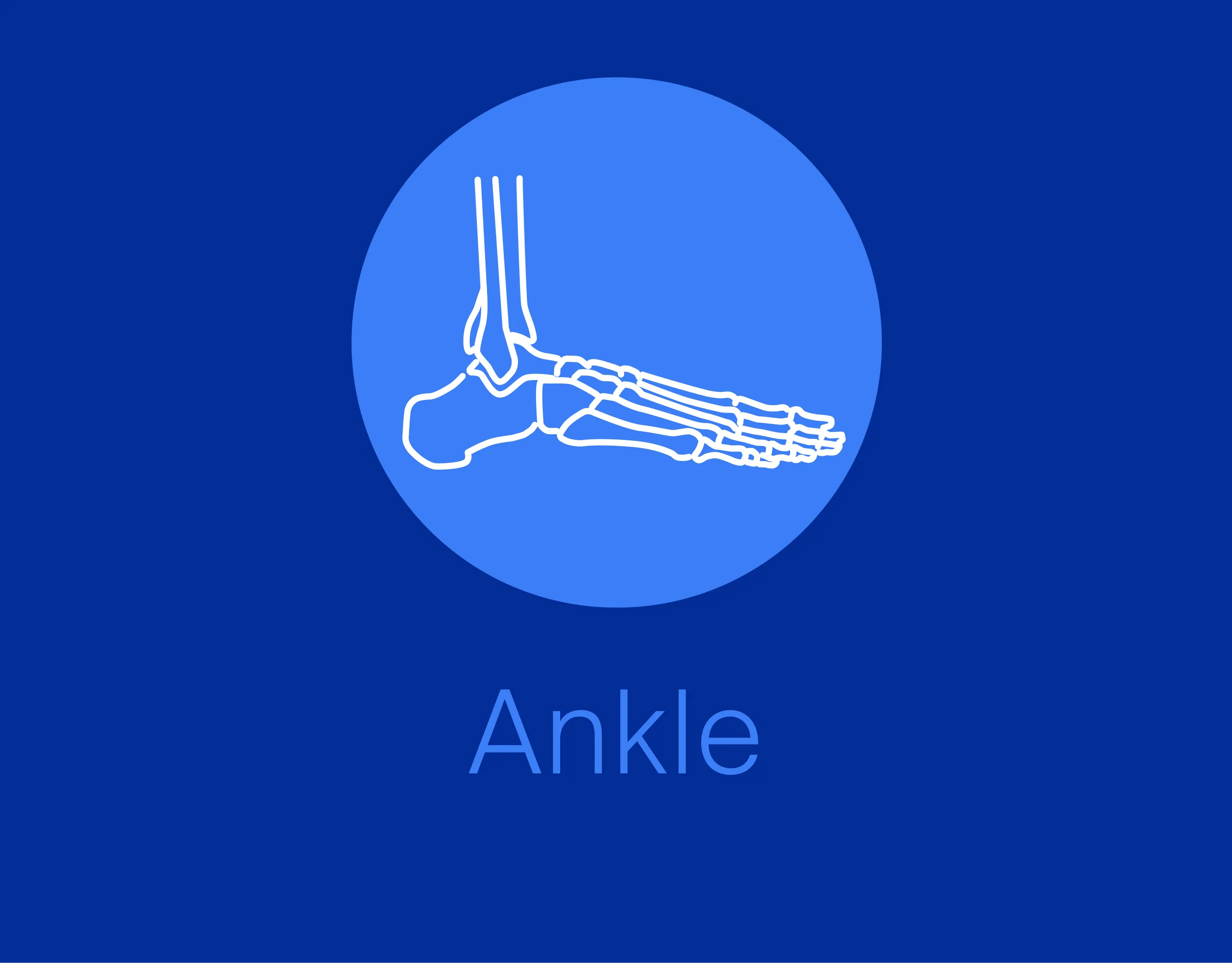Direct lateral approach to the talus
1. Indications
The indication for this approach is a simple fracture of the lateral process of the talus, or to debride the subtalar joint.
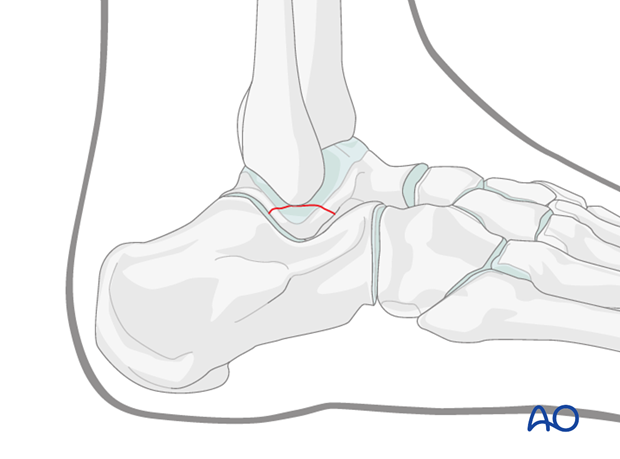
This approach utilizes a simple window to approach fractures of the lateral process of the talus (e.g. “snowboarder’s talus”). Limited subtalar visualization with arthroscopy or fusion procedures can also utilize this direct lateral approach.
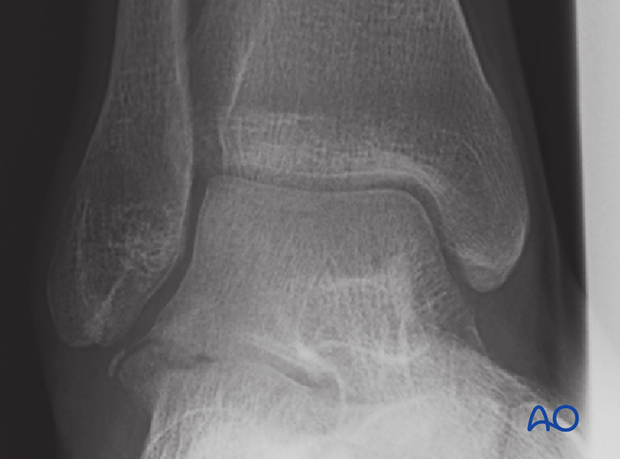
Debridement of subchondral debris after a fracture of the subtalar joint is also an indication for this approach.
Case by courtesy of Dr. Steven Steinlauf, Florida, USA.
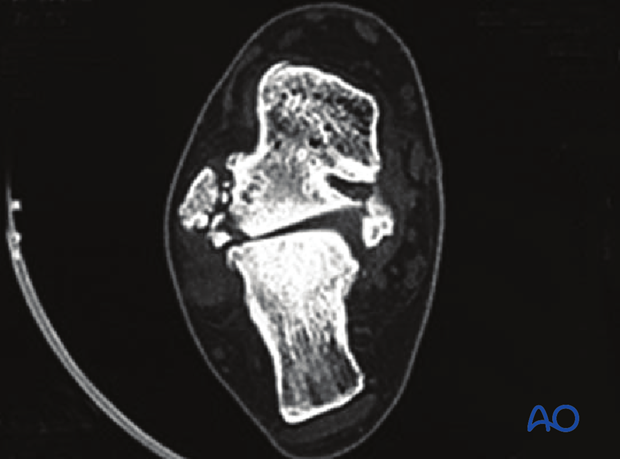
2. Anatomy
There are few important structures in this area. Note the peroneal tendons posteriorly and laterally, and the extensor tendons more anteriorly and dorsally. Between these two tendons is a fat pad which leads one to the subtalar joint.
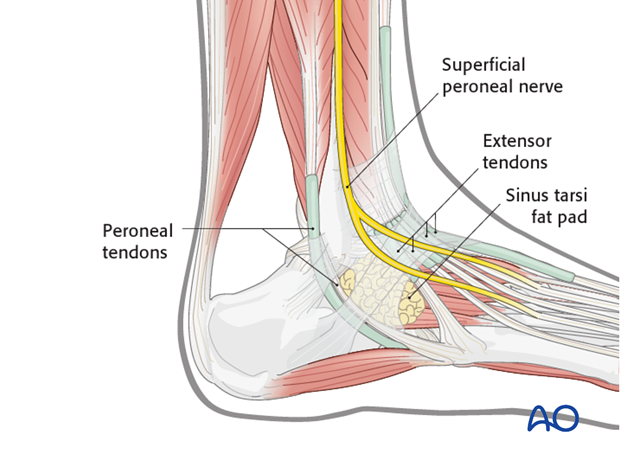
3. Incision
Skin incision
This incision is placed with the help of image intensification running somewhat parallel to the tendons.
It is placed closer to the peroneal tendons, centered on the lateral process of the talus and immediately in front of the fibula.
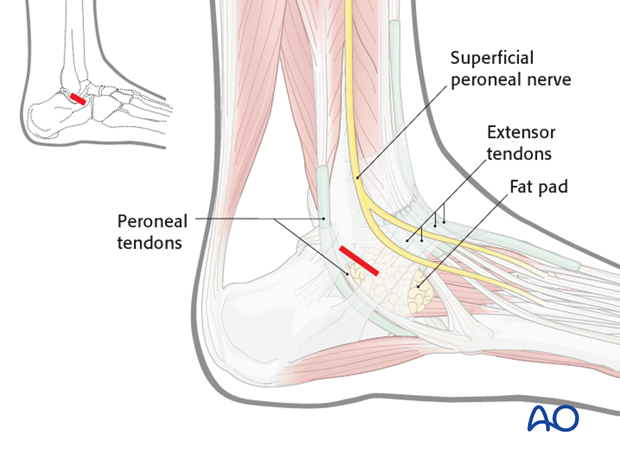
Deep dissection
Once through deep fascia, an area of fat is found which is incised revealing the subtalar capsule and the bony lateral process of talus.
This provides access for treatment of the lateral process or debridement of the subtalar joint as required.
Case by courtesy of Dr. Steven Steinlauf, Florida, USA.
